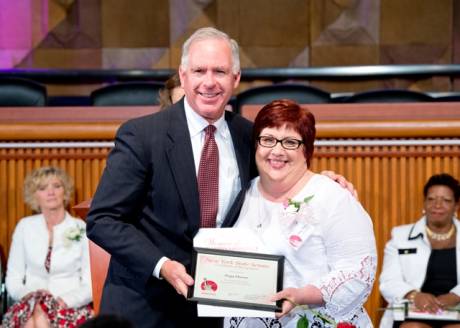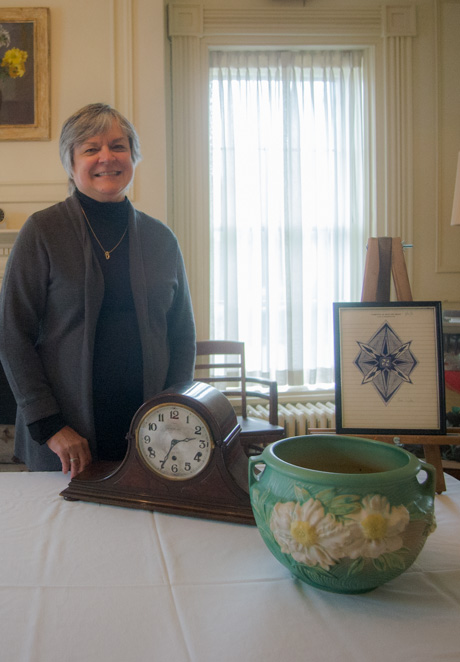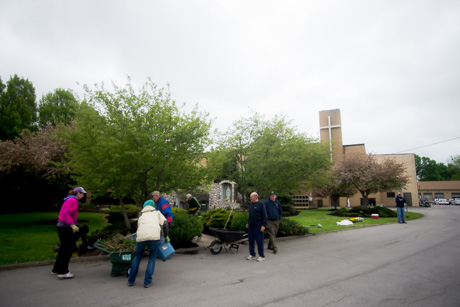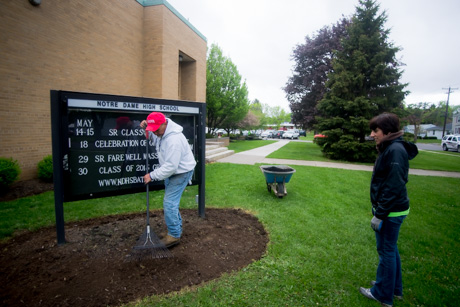The Police Facilities Committee has narrowed the possible locations it might recommend for a new Batavia PD headquarters to three locations:
- Alva Place and Bank Street, in the parking lot at that location;
- Swan Street, at the site of the now demolished Wiard Plow factory building;
- Jackson Street, the current location of the Salvation Army.
Committee members pretty much arrived at the three locations through a process of elimination and largely by consensus. Using a spreadsheet that allowed them to rank each location based on a number of factors, including cost, potential configuration, proximity to the center of the city, and other criteria, these sites scored the highest.
The lowest-scoring locations were the two options for remodeling the current headquarters -- the Brisbane Mansion -- and a co-location of sorts with the Sheriff's Office on Park Road.
The committee will visit each of the remaining sites under consideration May 28, re-score them and then meet again at a later date to hopefully hash out an agreed-upon recommendation for City Council.
Each potential site, committee members acknowledged, has its pluses and minuses.
"There's really no ideal spot," said Jim Jacobs.
Still, the committee will try to come up with one single recommendation for City Council to consider. Committee members agreed that it was their job to present one location as its recommendation, with its rationale in a report, and let the council decide yes or no on that recommendation, rather than bog down a council debate with two or three recommendations.
Both the Alva Place location and Swan Street were not part of the original seven alternatives presented to the committee, but emerged as potential sites through the process of the committee's discussions and review of the geography and topography of the city.
There are committee members with strong feelings about each location, and each has at least one member with strong feelings about its lack of suitability.
Alva Place: Committee members love it for its high visibility downtown, central location to downtown and addition of density to downtown. It's also the lowest cost option, coming in at at least $800,000 less than the Salvation Army location. The location's critics are concerned about traffic congestion on Bank Street and at Main and Bank, the loss of parking in the area and potential conflicts with pedestrian traffic going to and from the YMCA and Senior Center.
Chief Shawn Heubusch was among those expressing concern about traffic congestion. He is very concerned, he said, about the potential for patrols responding to calls getting hung up in traffic at Main and Bank. A committee member countered that typically patrols are not at the office when they are dispatched to calls, which Heubusch agreed with, but if they are responding from the office, traffic could be a problem, likewise in big incidents when patrols and detectives are all rolling from the office.
Marc Staley is particularly concerned about losing parking and the impact that could have on the movie theaters, JCPenney and the doctors' offices on Washington Avenue.
"We could end up with a bunch of vacant buildings on Washington," Staley said. "We don't want to poke JCPenney in the nose and have them go out to where Radio Shack is or leave the city. I don't think we want to be pennywise and pound foolish."
Ashley Bateman initially scored Alva Place high, but after listening to the discussion, expressed some reservations.
"I don't think Alva is really functional as much as I would like to see something there," Bateman said.
Pete Garlock stuck to his guns, however, insisting it's the most suitable location citing its centralness to the city, ease of access, high visibility and lower cost.
Swan Street: There wasn't as much discussion about Swan Street. Everybody kind of likes the location, except it would have much less public visibility. It would be reasonably accessible to Main and Ellicott streets and cost less than Jackson Street. The property is privately owned and would need to be acquired. The property would come off the tax roles, but it only generates less than $2,000 a year in municipal tax now. A police station in that location might also help spur other economic development activity in the neighborhood.
Jackson Street: The main concern is cost. The property is in the floodplain and mitigating that fact drives up the cost. It's also property that while owned by a tax-exempt nonprofit would still need to be purchased.
Garlock expressed concern about kicking a good organization out of its location, but McGinnis argued that the Salvation Army Thrift Store is struggling in that location in part because of the age and condition of the building, its size and the addition of new competition from Goodwill and Volunteers of America.
"That would be my number-one location if not for the floodplain," Staley said.







































